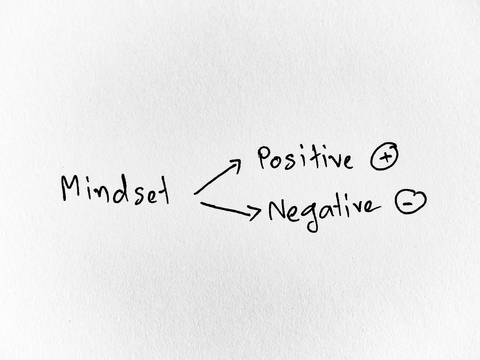12 Ways to Recognise Negative Thoughts

Negative thinking happens at an unconscious level and is often the root cause of some of our negative behaviour. But how can you become aware of the things you don’t even know you are thinking about?
Recognising negative thinking patterns can provide you with the tools to disrupt intrusive thoughts and create a healthier view on life. It is possible to change negative thoughts that lead to negative feelings and behaviour, but first you have to learn to recognise your negative thinking patterns.
Characteristics of Negative Thinking
- AUTOMATIC – They just pop into your head without any effort on your part
- DISTORTED – They do not fit all of the facts or are just generally wrong
- UNHELPFUL – They affect the way you feel and behave. Make it difficult to change and stop you from getting what you want out of life
- BELIEVABLE – You accept them as facts and it does not occur to you to question them
- INTRUSIVE– You do not choose to have them, they can be very violent or disturbing and they can be very difficult to switch off
12 Ways to Recognise Negative Thoughts
- All or Nothing Thinking- Seeing things in black & white, missing the grey, e.g. they either love me or they hate me
- Over-generalisation- Seeing a negative event as a sign that everything is negative, i.e.’ I always fail’, ‘I fail at everything I do’, or ‘I am always and forever going to be skint’
- Mental Filter– Picking out a single negative detail and focusing only on that, without taking into account any good things that might have happened. For example, after a conversation with someone you only recall the one minor criticism and ignore the 16 good things they said
- Discounting the positive– Recognising something good in your life and then rejecting it as irrelevant. ‘That doesn’t count’, or ‘anyone can do that’
- Jumping to Conclusions- Making negative interpretations without facts to back them up. ‘I have a swollen gland, it must be cancer’.
- Mind Reading- Making negative interpretations of what others may be thinking. ‘Everyone there thought I was stupid’
- Fortune Telling- Anticipating that things will turn out badly, and feeling like your prediction is already a fact. ‘I’m never going to be able to get a job, so I won’t bother trying’
- Magnifying- Exaggerating the importance of things like mistakes, or someone else’s achievement
- Minimisation– Underestimating the importance of positive events or your own good qualities. ‘She seems to like my company, but that’s only because there is no-one else available’
- Perfectionism (unrealistic goals)- You motivate yourself with, ‘should’, & ‘must’. If you don’t manage to do things exactly right you then feel guilty and demoralised. If you direct these statements towards other people you feel anger, resentment & frustration. ‘Other people should always be reliable, trustworthy, on time, etc’
- Self-Blame- You see yourself as responsible for some negative external events for which you were not responsible. ‘I’m just bad luck for anyone who comes near me’, remember you are responsible for your own thoughts and feelings; others are responsible for their own
- Self-Putdowns- Attaching a negative label to yourself. ‘I’m a bad person’, ‘I don’t deserve any better’, ‘I am stupid, unreliable, weak’.
If you can identify with at least three of these negative thinking patterns you could be the victim of negative thoughts. Remember this is mostly an unconscious process, so it can be difficult to recognise this thinking.
We probably all experience negative thoughts from time to time, as we all have mental health. But, if your thoughts are intrusive or disturbing perhaps, it is time to challenge these thinking patterns.
Join us this week on my podcast to learn techniques to challenge negative thinking.
